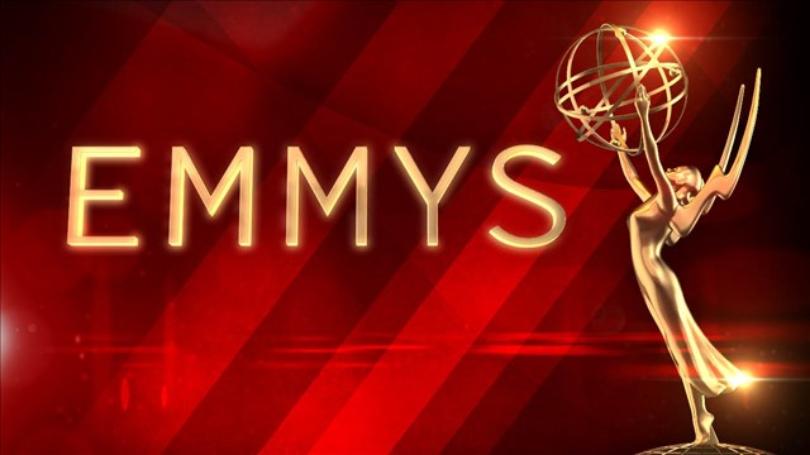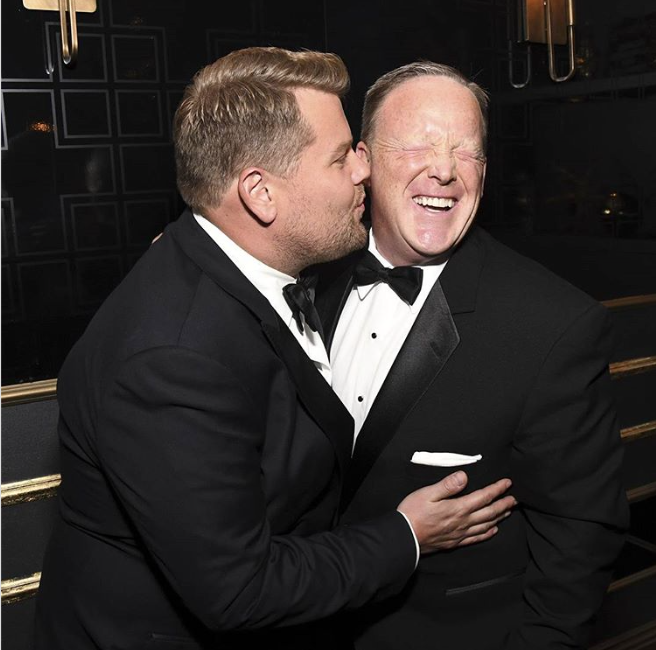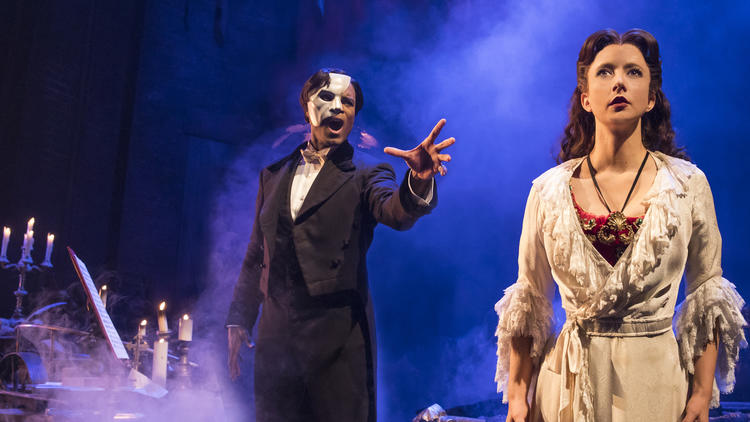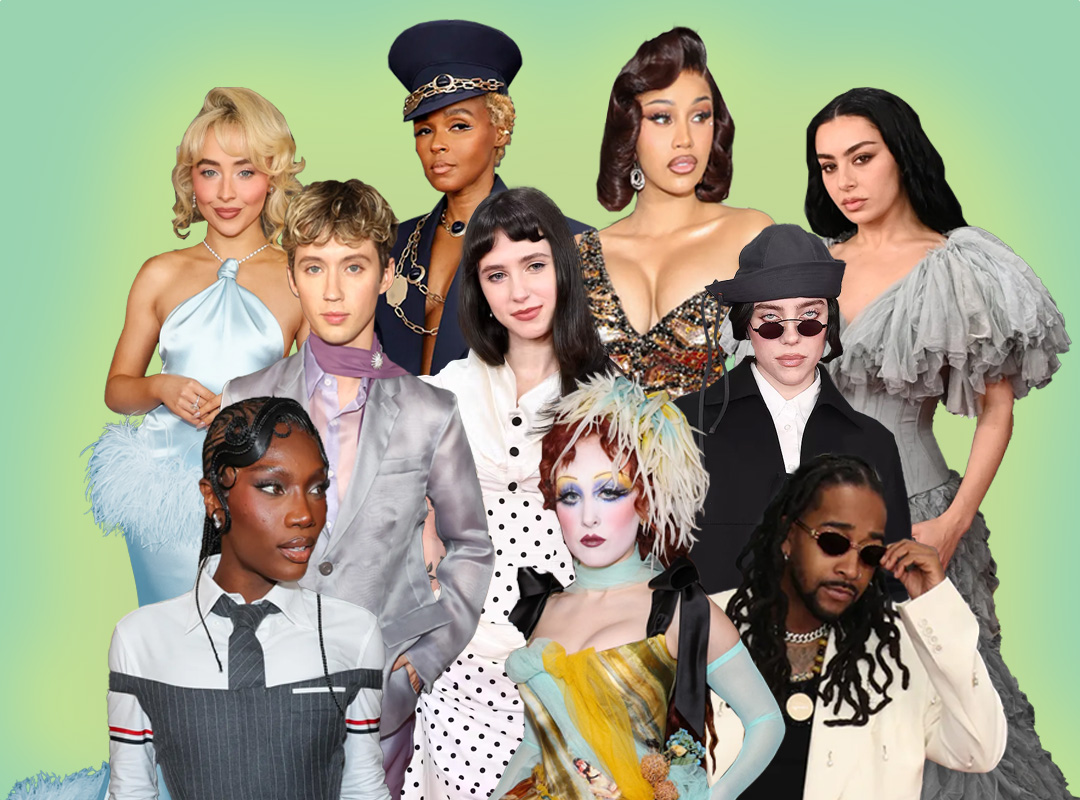The 2017 Emmys made history in many groundbreaking ways. Identity and diversity seemed to take center stage as the winners for each category were announced. “The Handmaid’s Tale,” a timely television show based on the novel of the same name, won the Outstanding Drama Series. The television show “Big Little Lies,” also based on a novel, was written by Nicole Kidman and Reese Witherspoon. It won Outstanding Limited Series. Both are television shows centered around women in some way; the latter was written by two women who were dissatisfied with the roles being penned for them in Hollywood.
Furthermore, Aziz Ansari and Lena Waithe both won the “Outstanding Writing for a Comedy Series” award for the “Thanksgiving”episode of Ansari’s show “Master of None.” Waithe is the first black woman to both be nominated for and win the award. Riz Ahmed won “Outstanding Lead Actor in a Limited Series,” and made history as the first South Asian man to do so. The list goes on, and the award show was rounded out by rousing speeches addressing diversity, inequality, and prejudice in today’s political climate.
One side of the coin says that the nominees and winners of this year’s Emmy awards show progress that has been made in television. Clearly, Waithe and Ahmed’s wins show a nod to the importance of diversity, right? This must mean that the all-powerful entities in television and film acknowledge the importance of highlighting different narratives.
The other side of the coin, however, cautions against being lulled into complacency. In an interview with Rolling Stone, famed television writer Shonda Rhimes pointed out how ridiculous it is that we still have to note such wins as important. “I’m hoping that people don’t feel satisfied because they saw a lot of people win, and then think that we’re done.”
Indeed, Rhimes makes an important point: we must not think the job is done. As long as Hollywood continues to whitewash roles that should be played by non-white actors, the allyship demonstrated at the Emmys is just performative. As long as Sean Spicer is able to show up on stage, using Melissa McCarthy’s podium (behind which she satirized him countless times on SNL) and essentially embark on a redemption tour, the diversity in this year’s nominees and winners means nothing. All it takes is one Google search to see the actors we thought as “progressive” and “allies” clamoring to take selfies with Spicer at after parties.
Everything and everyone that made the Emmys historical this year was only possible because we pushed for it. It took decades of shouting for minorities to finally see themselves represented and normalized in television today (though there is still a very long way to go.) The minute we giggle and laugh with a man who stood by a bigot’s side, who helped push the sitting President’s prejudice and lies, we wipe out any ounce of progress that may have been made.
The 2017 Emmys made history in many groundbreaking ways. Identity and diversity seemed to take center stage as the winners for each category were announced. “The Handmaid’s Tale,” a timely television show based on a novel of the same name, won the Outstanding Drama Award. The television show “Big Little Lies,” also based on a novel, was written by Nicole Kidman and Reese Witherspoon. It won Outstanding Limited Series. Both are television shows centered around women in some way; the latter was written by two women who were dissatisfied with the roles being penned for them in Hollywood.
Furthermore, Aziz Ansari and Lena Waithe both won the “Outstanding Writing for a Comedy Series” award for the Thanksgiving episode of Ansari’s show “Master of None.” Waithe is the first black woman to both be nominated for and win the award. Riz Ahmed won “Outstanding Lead Actor in a Limited Series,” and made history as the first South Asian man to do so. The list goes on, and the award show was rounded out by rousing speeches addressing diversity, inequality, and prejudice in today’s political climate.
One side of the coin says that the nominees and winners of this year’s Emmy awards show the progress that has been made in television. Clearly, Waithe and Ahmed’s wins show a nod to the importance of diversity, right? This must mean that the all-powerful entities in television and film acknowledge the importance of highlighting different narratives.
The other side of the coin, however, cautions against being lulled into complacency. In an interview with Rolling Stone, famed television writer Shonda Rhimes pointed out how ridiculous it is that we still have to note such wins as important. “I’m hoping that people don’t feel satisfied because they saw a lot of people win, and then think that we’re done,” she said.
Indeed, Rhimes makes an important point: we must not think the job is done. As long as Hollywood continues to whitewash roles that should be played by non-white actors, the allyship demonstrated at the Emmys is just performative. As long as Sean Spicer is able to show up on stage, using Melissa McCarthy’s podium (behind which she satirized him countless times on “Saturday Night Live”) and essentially embark on a redemption tour, the diversity in this year’s nominees and winners means nothing. All it takes is one Google search to see the actors we thought of as “progressive” and “allies” clamoring to take selfies with Spicer at after parties.
Everything and everyone that made the Emmys historical this year was only possible because we pushed for it. It took decades of shouting for minorities to finally see themselves represented and normalized in television today (though there is still a very long way to go.) The minute we giggle and laugh with a man who stood by a bigot’s side, who helped push the sitting president’s prejudice and lies, we wipe out any ounce of progress we have made.





















